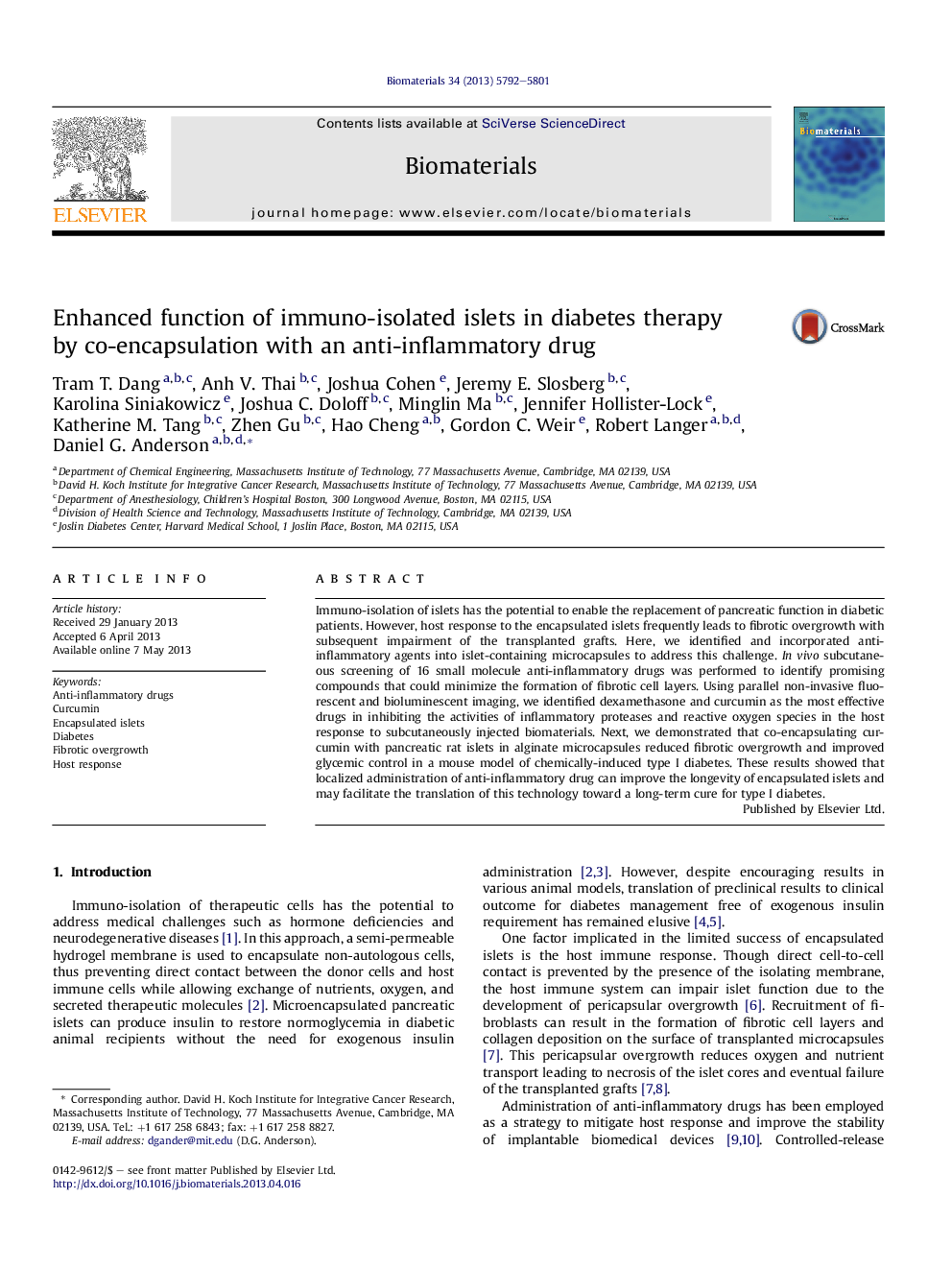| Article ID | Journal | Published Year | Pages | File Type |
|---|---|---|---|---|
| 6315 | Biomaterials | 2013 | 10 Pages |
Immuno-isolation of islets has the potential to enable the replacement of pancreatic function in diabetic patients. However, host response to the encapsulated islets frequently leads to fibrotic overgrowth with subsequent impairment of the transplanted grafts. Here, we identified and incorporated anti-inflammatory agents into islet-containing microcapsules to address this challenge. In vivo subcutaneous screening of 16 small molecule anti-inflammatory drugs was performed to identify promising compounds that could minimize the formation of fibrotic cell layers. Using parallel non-invasive fluorescent and bioluminescent imaging, we identified dexamethasone and curcumin as the most effective drugs in inhibiting the activities of inflammatory proteases and reactive oxygen species in the host response to subcutaneously injected biomaterials. Next, we demonstrated that co-encapsulating curcumin with pancreatic rat islets in alginate microcapsules reduced fibrotic overgrowth and improved glycemic control in a mouse model of chemically-induced type I diabetes. These results showed that localized administration of anti-inflammatory drug can improve the longevity of encapsulated islets and may facilitate the translation of this technology toward a long-term cure for type I diabetes.
